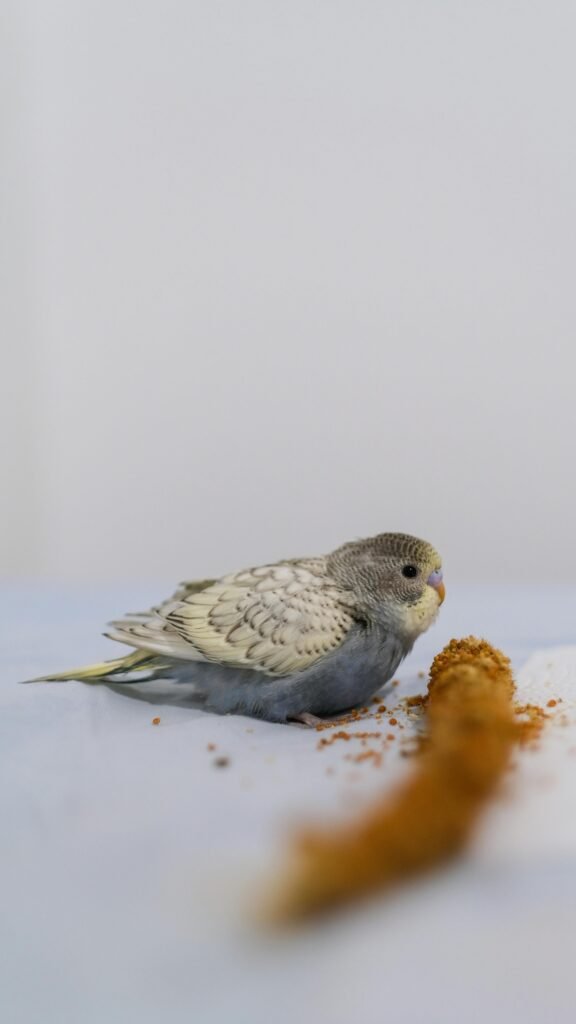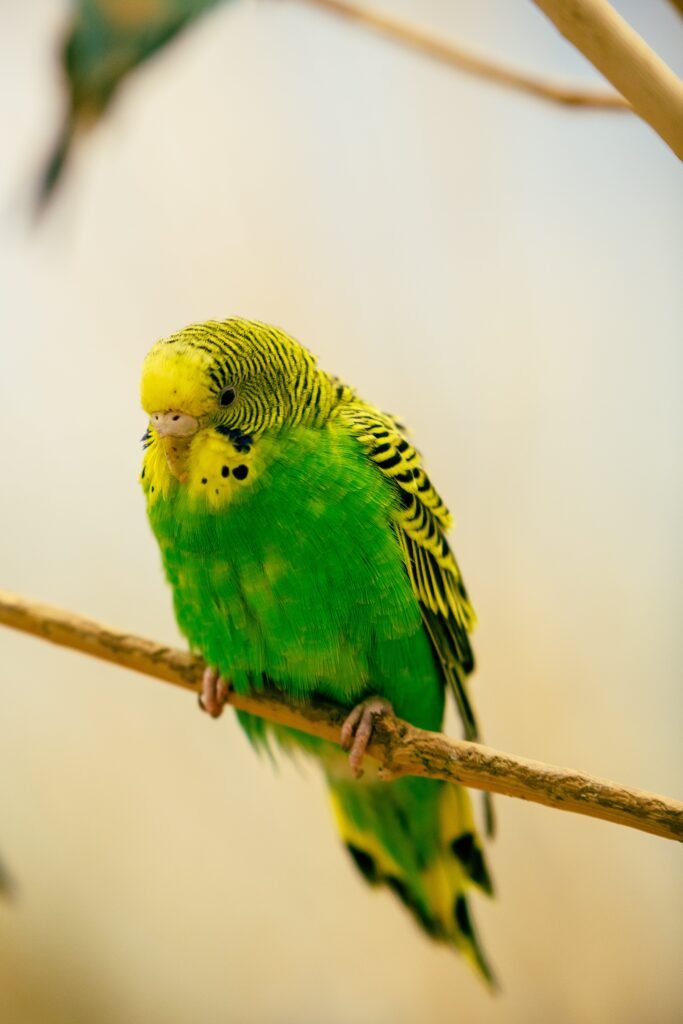
Budgies, also known as parakeets, are small and colourful birds that make popular pets due to their playful nature and ability to mimic sounds. As responsible pet owners, it is crucial to understand the dietary needs of these delightful birds. One common concern many budgie owners have is how long their feathered friends can go without food. In this article, we will delve into this topic and provide you with valuable information.
The Importance of Nutrition for Budgies
Before discussing how long budgies can go without food, it is essential to understand the significance of a balanced and nutritious diet for these birds. Budgies require various nutrients to maintain their health, including proteins, carbohydrates, fats, vitamins, and minerals. These nutrients are essential for their growth, immune system function, health, and well-being.
A balanced diet for budgies should contain various foods that provide all the necessary nutrients. This includes a high-quality seed mix specifically formulated for budgies. The seed mix should contain a variety of seeds, such as millet, canary seed, and sunflower seeds. Additionally, fresh fruits and vegetables should be offered in their daily diet. These include apples, carrots, broccoli, spinach, and bell peppers. Pelleted diets can also be included to ensure a balanced diet, as they offer a concentrated source of essential nutrients. It is important to introduce pellets gradually, as budgies may take time to adjust to this new food source. Treats should be given sparingly to avoid nutritional imbalances, and fresh, clean water should always be provided.
Natural Survival Instincts
In the wild, budgies face varying food availability due to climate, availability of food sources, and predators. As a result, these birds have developed natural survival instincts that enable them to cope with temporary food scarcity. However, this does not mean budgies can survive for extended periods without consuming food.
Budgies have evolved to have a high metabolic rate, which means they burn energy quickly. As a result, they need to eat frequently to maintain their energy levels. A healthy budgie can go without food for approximately 24 to 48 hours. However, it is crucial to note that this should not be considered a viable or recommended practice. Prolonged starvation can have severe consequences for budgies, including malnutrition, weakened immune system, muscle wasting, organ failure, and even death. Therefore, ensuring their well-being by providing a consistent and nutritious diet is important.
Risks of Starvation
While budgies can survive without food for a short period, prolonged starvation can have serious health consequences. Lack of proper nutrition can lead to malnutrition, weakening their immune system and making them more susceptible to diseases. Malnutrition can also result in muscle wasting, where the bird’s muscles begin to break down due to a lack of nutrients. This can lead to weakness and a decreased ability to move. In severe cases, organ failure can occur, ultimately leading to the bird’s death.
As a responsible budgie owner, monitoring your bird’s eating habits and ensuring they receive a balanced and nutritious diet is crucial. Regular veterinary check-ups can help identify any potential nutritional deficiencies or health issues early on. Providing a varied diet that includes a high-quality seed mix, fresh fruits and vegetables, and pelleted diets can help prevent the risks associated with starvation.
Factors Affecting Food Consumption
Several factors can influence a budgie’s food consumption and impact its ability to go without food. It is important to consider these factors to ensure that your budgie is receiving adequate nutrition.
- Age: Young budgies require frequent meals to support their growth and development. They have higher energy needs and a consistent food supply to meet these demands.
- Health: Sick or injured budgies may have reduced appetite and require prompt medical attention. It is important to monitor their eating habits closely and consult a veterinarian if any changes in appetite are observed.
- Environmental Conditions: Extreme temperatures or stressful environments can affect a budgie’s appetite. High temperatures can increase their water requirements, while stressful environments can lead to a loss of appetite. Providing a comfortable and stress-free environment is important to ensure optimal food consumption.
- Activity Level: Budgies that engage in high levels of physical activity may require additional food to meet their energy needs. Increased activity levels can result in higher calorie expenditure; therefore, more food consumption is necessary to maintain their energy balance.
By considering these factors and providing appropriate adjustments to their diet, you can help ensure that your budgie is receiving the necessary nutrients to thrive.

Signs of Hunger in Budgies
Budgie owners must know their feathered companions’ signs of hunger or malnutrition. Recognizing these signs can help identify any issues with their diet and address them promptly. Some common indicators that your budgie may be hungry include:
- Increased vocalization or squawking: Budgies may become more vocal when hungry as they try to communicate their need for food.
- Restlessness or excessive movement: A hungry budgie may exhibit restlessness and constant movement as it searches for food.
- Fluffing of feathers: Budgies may fluff their feathers when hungry or cold. Fluffing helps to conserve body heat and energy.
- Weight loss or visible ribcage: Significant weight loss or a visible ribcage can indicate malnutrition and hunger in budgies.
- Reduced activity levels: A hungry budgie may become lethargic and show a decrease in activity levels.
- Lack of interest in surroundings or toys: When budgies are hungry, they may lose interest in their surroundings and toys and focus solely on finding food.
It is important to address these signs promptly by providing a balanced and nutritious diet. If these signs persist or worsen, it is recommended to consult a veterinarian for further evaluation and guidance.
Feeding Tips to Ensure Budgie’s Health and Happiness
To provide the best care for your budgie, offering a balanced and nutritious diet is important. Here are some feeding tips to ensure the health and happiness of your budgie:
- High-Quality Seed Mix
Choose a high-quality seed mix specifically formulated for budgies. This mix should contain a variety of seeds, including millet, canary seed, and sunflower seeds. These seeds provide essential nutrients and offer a variety of flavours and textures to keep your budgie engaged.
- Fresh Fruits and Vegetables
In addition to a seed mix, fresh fruits and vegetables are a crucial part of your budgie’s diet. These foods offer a wide range of vitamins, minerals, and antioxidants that are essential for their overall health. Offer a variety of options, such as apples, carrots, broccoli, spinach, and bell peppers. Be sure to wash the fruits and vegetables thoroughly and remove any seeds or pits that may be toxic to budgies.
- Pelleted Diets
Consider including pelleted diets in your budgie’s feeding routine. Pellets offer a concentrated source of essential nutrients and help ensure a balanced diet. Look for pellets specifically formulated for budgies and introduce them gradually into their diet. Some budgies may take time to adjust to the new texture and taste of pellets, so be patient during this transition.
- Limited Treats
Treats should be given sparingly to avoid nutritional imbalances. While budgies may enjoy the occasional treat, it is important to choose healthy options. Small pieces of millet spray can be a great treat for budgies. Avoid sugary or salty snacks, as these can harm their health. Remember, moderation is key when it comes to treats.
- Fresh Water
Always provide your budgie with fresh, clean water. Change the water daily to prevent contamination and ensure your budgie stays hydrated. Water is essential for their overall health and helps facilitate digestion and nutrient absorption.
By following these feeding tips and providing a balanced and nutritious diet, you can ensure the health and happiness of your budgie companion.
Conclusion
While budgies have some natural ability to cope with temporary food scarcity, providing them with a consistent and nutritious diet is essential. A healthy budgie can typically go without food for 24 to 48 hours, but prolonged starvation can have serious health consequences. By understanding their dietary needs and offering a balanced diet that includes a high-quality seed mix, fresh fruits and vegetables, pelleted diets, and limited treats, you can ensure the well-being and longevity of your budgie companion. Regular veterinary check-ups and monitoring their eating habits are important to identify potential nutritional deficiencies or health issues. Remember, providing a nourishing diet is key to keeping your budgie happy and healthy for years.
FAQ
Q: How long can budgies go without food?
A: A healthy budgie can go without food for approximately 24 to 48 hours. However, prolonged starvation is not recommended as it can have severe consequences for their health.
Q: What are the risks of starvation for budgies?
A: Prolonged starvation can lead to malnutrition, weakened immune system, muscle wasting, organ failure, and even death in budgies. Providing a consistent and nutritious diet to prevent these risks is crucial.
Q: What factors can affect a budgie’s food consumption?
A: Several factors can influence a budgie’s food consumption, including age, health, environmental conditions, and activity level. It is important to consider these factors and adjust their diet appropriately.
Q: What are the signs of hunger in budgies?
A: Some common signs of hunger in budgies include increased vocalization, restlessness or excessive movement, feather fluffing, weight loss or visible ribcage, reduced activity levels, and lack of interest in surroundings or toys.



